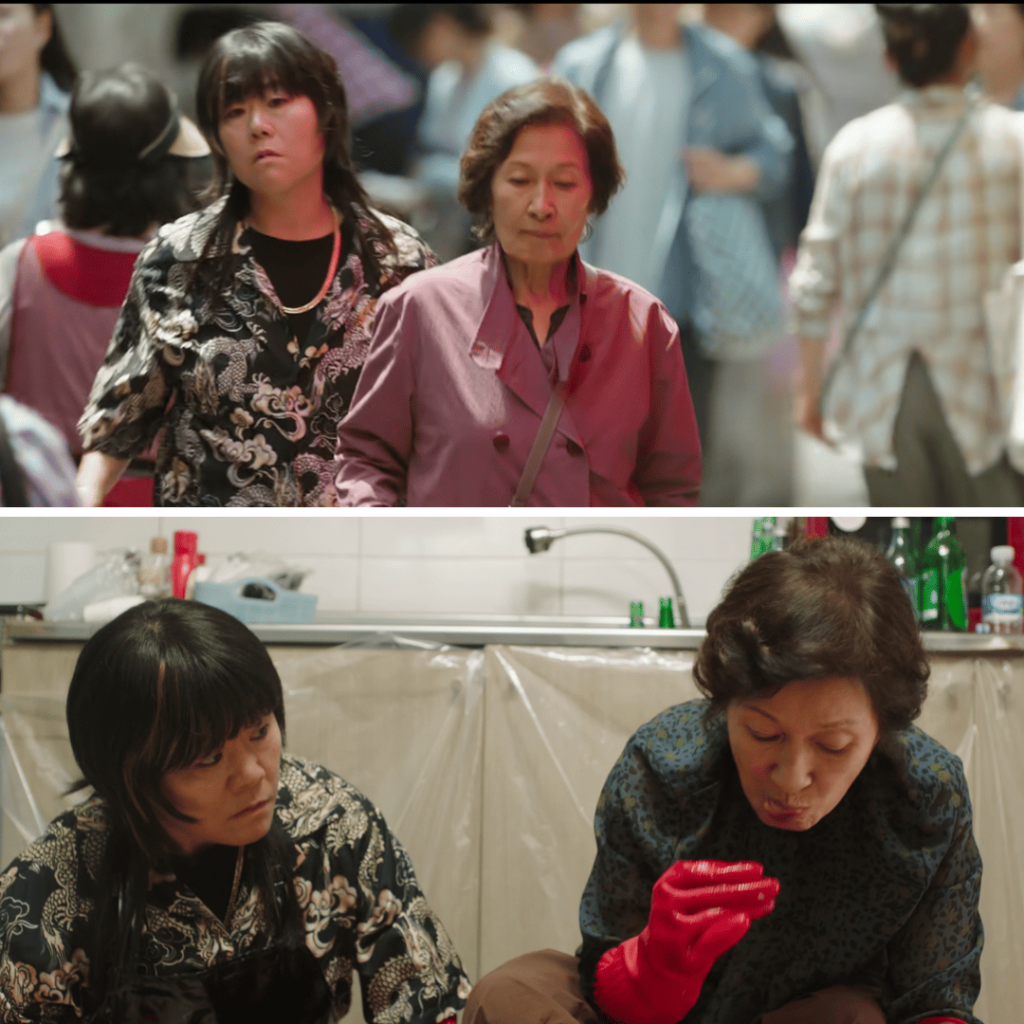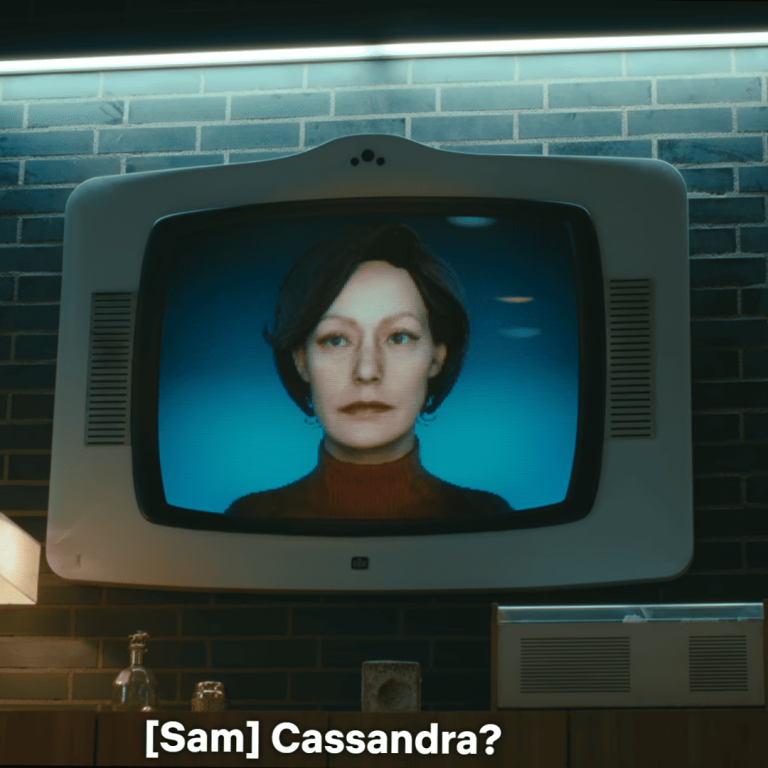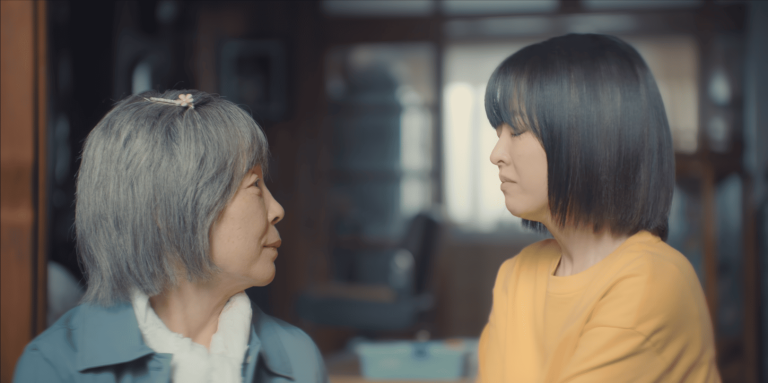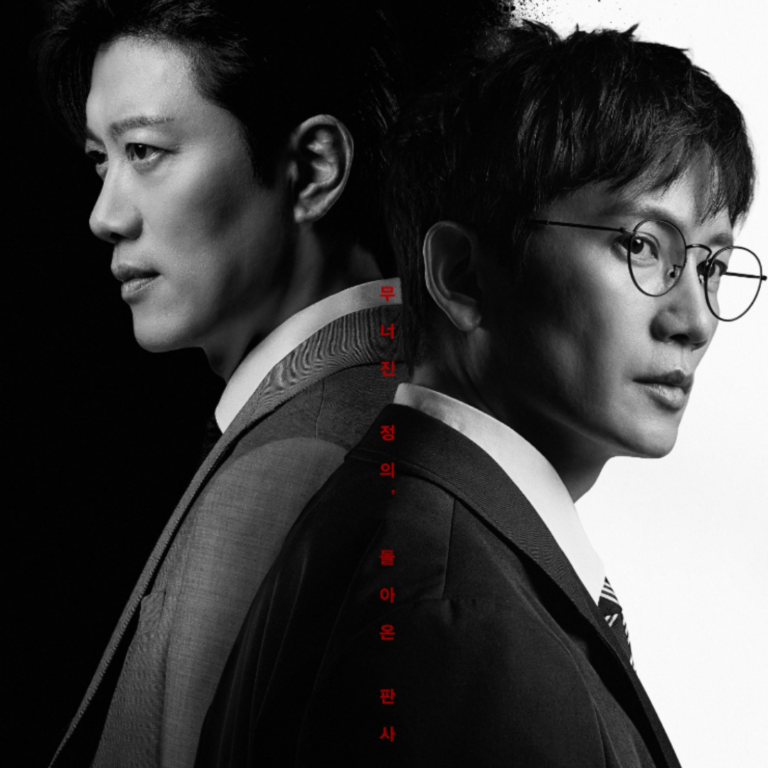Heavenly Ever After: First Impressions of a K-Drama About Love, Death, and Picking the Right Age for the Afterlife

What Got Me Hooked (a.k.a. Soulmate Logistics Gone Wrong)
I stumbled onto Heavenly Ever After thanks to a friend who sent me a reel, and I was instantly pulled in by the concept. Picture this: an elderly woman dies, arrives in heaven, and gets to pick the age she wants to appear as for eternity.
So does her husband. Only, plot twist, he chooses to look young and hot, and she chooses to stay 80 because that’s when he once told her she was at her most beautiful. But he gets a shock when they reunite in the after life.
The emotional chaos of that moment? Peak dark rom-com energy.
I’ve always had a weird interest in the bureaucracy of the afterlife, how it works, who’s running the show, what the fine print is. This drama doesn’t go spiritual in the typical sense. It goes admin-heavy, emotionally absurd, and hilariously grounded in heartbreak. A vibe I didn’t know I needed.

That Opening Scene? Not What You Expect (and That’s Why It Works)
We open with Lee Hae Sook in her 80s, being harassed by two debt collectors banging on her door over her son’s gambling debts. Her response? Pure savage.
She offers them her own body as collateral, then immediately wakes up her son to get her money back. Within the first five minutes, I knew Hae Sook had the kind of dry humor and don’t-mess energy that would carry this show.
No sentimental tears here, just a badass grandma outwitting desperate thugs and handling chaos with a smirk. I was sold.

Our Couple: Vows That Went Beyond “Til Death”
The heart of the episode is Hae Sook and Nak Joon, a couple who’ve been through everything. Married young. Lived through his life-changing accident in his 30s. She cared for him for nearly six decades without resentment or complaint.
Instead, she flipped her circumstances into survival by becoming a tough, no-nonsense moneylender. Kimchi juice, mackerel, verbal abuse, she’s endured it all with a surprisingly soft core.
Nak Joon, paraplegic and dependent, wasn’t bitter. He teased her. He worried about her. And in one of the most tender lines of the episode, he tells her she was beautiful in her 20s, even more in her 40s, but her most beautiful? Right now, in her 80s.
That’s the line that sets everything in motion.

Death Is Just the Beginning (and It’s Kinda Funny, Actually)
When Hae Sook dies and finally reunites with her husband in heaven, she discovers that you get to choose your appearance. Naturally, Nak Joon chose to return to his youthful prime. Hae Sook, moved by his earlier words, chose to stay in her 80s, the age he said she looked the prettiest.
Cue the meet-cute-gone-wrong: he’s young and confused, she’s old and smug. It’s hilarious, sweet, and kind of genius.
I love the idea of getting to pick your age in the afterlife. But I also think—philosophically—our soul has a “default age” anyway. That inner voice you hear? It doesn’t really age.
Most people I know say they feel perpetually 25, no matter what the mirror says. Maybe that’s the soul’s true age, right after your prefrontal cortex finishes cooking, but before life hits you with too many heartbreaks.

Welcome to the Afterlife, Baby
The show’s depiction of heaven isn’t pearly gates and harp music, it’s a weirdly corporate train ride with passengers headed to either paradise or…not.
The moment where the train pauses in hell and people get yeeted out of their seats by invisible forces? I was SCREAMING. Like, girl, Hae Sook really thought she was next and tried to brace herself.
That dark humor mixed with self-judgment hit me. Hae Sook genuinely thought she might not deserve heaven, and it was raw. Then there was the heartbreaking moment where each soul had to give up one final, precious item, a mother’s savings for her kids, a fireman’s oxygen mask.
But Hae Sook? She had nothing to leave behind. Because, I realized, she already gave everything to Nak Joon. He was her “everything.”

Heavenly Ever After :Favorite Characters So Far
Hae Sook is already an icon in my book. She’s the definition of “ride or die” stood by her man for almost 60 years, weathered abuse, betrayal, fish-throwing debtors, and still managed to walk through life with grace and grit. I admire the hell out of her.
Lee Young Ae’s character also caught my eye. She’s the girl Hae Sook rescued from an abusive home, and there’s something raw and real about their bond. I’m hoping we see how she processes her grief moving forward. I have a feeling she’s going to be a quiet powerhouse in future episodes.

Humor vs. Heartache: Perfectly Balanced, As All K-Dramas Should Be
What really works in Heavenly Ever After is the balance. Death, aging, and caretaking could easily make for a tearjerker, but the show never gets stuck in the sorrow.
Instead, it flips the script with humor because honestly, what’s funnier than dying and realizing your soulmate is gobsmacked because you chose your grandma form?
It’s the age-old truth: sometimes, if you don’t laugh, you’ll cry. Especially when life throws you scenes involving kimchi juice and flying croaker as occupational hazards.

Final Thoughts: Would You Pick 25 or 80?
Heavenly Ever After hit all the right notes in episode one: clever, heartfelt, slightly absurd, and deeply human. It’s about love that lasts, mistakes that linger, and the ridiculous, redemptive mess of being human even after you die.
And now I can’t stop wondering:
If I could choose my age in the afterlife…
Would I pick who I was at my best, or who I was when someone loved me the most?
“This show is giving Good Life meets Downsizing, with a side of Tomorrow (K-drama).”
First episode verdict? I’m touched, but it’s hilarious.

What I’m Hoping For
The first episode set up a lot: death, love, bureaucratic heaven, regret, comedy. But I’m hoping future episodes explore more of:
- What heaven actually is, are there rules? Is it customizable?
- How the “age gap” tension plays out now that Hae Sook and Nak Joon look decades apart.
- Will love really be blind or at least spiritually farsighted?
- And what happens to the people left behind?
Also: more train scenes. More judgment day side-eye. More kimchi-based warfare.

Want more first-impression reviews like this?
Check out my When Life Gives You Tangerines or American Primeval posts, where I process chaos, character choices, and emotional whiplash in real time.
Disclaimer: This blog is for informational and entertainment purposes only. All copyrights and trademarks for the TV shows, films, and other media referenced are the property of their respective owners. This blog aims to provide original commentary and insights and claims no ownership over third-party content.








Oh man! I really want to watch it now! Love the line, “would I pick who I was at my best, or who I was when someone loved me most?”
It’s a hard choice for sure—i reckon we have a default mode which is probably 25. You must watch it!